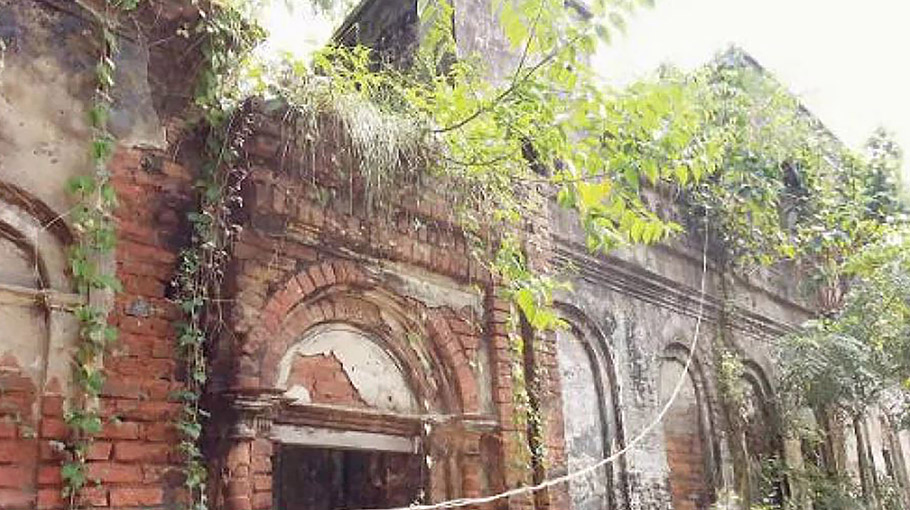House of Ila Mitra lies uncared for

The house of Ila Mitra, a prominent Bengali revolutionary, social activist, and a leader of the peasants' movement in the Indian subcontinent, particularly in Bangladesh (then East Bengal), is in ruins for a lack of proper care and maintenance.
The Ministry of Cultural Affairs in 2017 instructed the Jhenaidah Deputy Commissioner (DC) to preserve the house of Ila Mitra, one of the key leaders of ‘Tebhaga Andolon,’ at Bagutia Roypara village in Shailkupa upazila of Jhenaidah. The DC was instructed to preserve the house and the property under The Antiquities Act, 1968. However, the authority failed to look after the house of Ila Mitra.
Now a family is living in the house who claimed that their father Kiamudin bought the house from Ila Mitra’s successors.
No effective measure was so far taken to preserve the house, said the locals and people in Jhenaidah involved with the preservation of the house.
When this correspondent visited the place, it was seen that the plaster from every corner of the houses, including the roof and boundary walls, was gradually falling off. In some places, the old bricks were badly damaged due to a lack of repair and reconstruction for a long time.
The sons of Kiamuddin said their father purchased the house from the successors of Ila Mitra and they have all the deeds and documents. They said they also respect Ila Mitra, a historic figure of Bangladesh. If the government wants to acquire the house, they will gladly leave it. But as their father brought the house, the government needs to compensate them or arrange another place for them. They have no wish to disrespect Ila Mitra.
Ila Mitra, one of the key leaders of ‘Tebhaga Anodolon,’ was born on October 18 in 1925. She grew up in Bagutia village with her maternal uncles and others. She completed her post-graduation in Bengali Literature and Sanskritik. In 1945, she got married to a patriotic leader Ramendra Mitra, son of a Jaminder family from Chapainawabganj. Ramendra Mitra himself was a communist.
Ila Mitra’s fans and well-wishers said when the political environment of the North Bengal area in greater Rajshahi posed a threat for Ila Mitra, she tried to leave Bangladesh to go to Kolkata in the guise of a Santal woman. But she was caught by the Pakistani police and sent to prison. Later, she, along with 22 other farmers, landed in the prison for their alleged involvement in killing of four policemen. In 1954, Ila was granted bail in parole, although she could not return in to Bangladesh anymore. There, she started her carrier as a professor in Kolkata City College.
Ila was elected Bidhansabha member from Maniktala area in Kolkata for four consecutive terms. She organized the people abroad during the liberation war of Bangladesh in 1971. She was awarded for her outstanding contribution for both Bangladesh and India.
When contacted about the dilapidated condition of Ila Mitra’s house, Deputy Commissioner (DC) of Jhenaidah Mohammad Abdul Awal said Jhenaidah DC office, Shailkupa UNO office and Assistant Commissioner’s (Land) office are jointly working on the matter. They are verifying the deeds and document to learn who is the real owner of the house, as per the guidelines of the Ministry of Cultural Affairs under the rules of the archeological department act. He further added that, they will take necessary measures and preserve the house of Ila Mitra.




